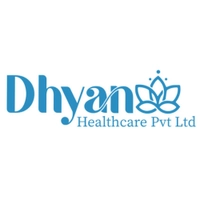Introduction
Attention Deficit Hyperactivity Disorder (ADHD) is a neurodevelopmental disorder characterized by persistent patterns of inattention, hyperactivity, and impulsivity that interfere with daily functioning. While ADHD is commonly associated with children, it can also affect adults, impacting various aspects of their lives. At Dhyan Healthcare, we are committed to helping you understand and manage ADHD effectively.
What Causes ADHD?
The exact cause of ADHD is not fully understood, but several factors may contribute to its development:
- Genetics: ADHD tends to run in families, suggesting a genetic component.
- Brain Structure and Function: Differences in brain anatomy and neurotransmitter function may play a role.
- Environmental Factors: Prenatal exposure to toxins, premature birth, or maternal smoking during pregnancy.
- Psychosocial Factors: Early childhood trauma, family stress, or parenting styles.
Symptoms of ADHD
ADHD symptoms can vary widely depending on the individual and may include:
- Inattention: Difficulty sustaining attention, following through on tasks, and organizing activities.
- Hyperactivity: Excessive fidgeting, restlessness, and difficulty staying seated.
- Impulsivity: Acting without thinking, interrupting others, and difficulty waiting their turn.
- Forgetfulness: Forgetting daily tasks, losing items frequently, and being easily distracted.
Diagnosis
Accurate diagnosis involves a comprehensive evaluation by a healthcare professional, which may include:
- Medical History: Reviewing symptoms, developmental milestones, and family history.
- Physical Examination: Rule out other medical conditions that may mimic ADHD symptoms.
- Behavioral Assessment: Gathering information from parents, teachers, or other caregivers about the individual's behavior.
- Psychological Testing: Assessing cognitive abilities, attention, and executive function.
Treatment Options
Managing ADHD involves a multimodal approach that combines medication, therapy, education, and lifestyle modifications. Here’s a comprehensive treatment plan:
-
Medication
- Stimulants: such as methylphenidate (Ritalin) or amphetamine (Adderall) to improve attention and reduce hyperactivity.
- Non-stimulants: like atomoxetine (Strattera) or guanfacine (Intuniv) for individuals who do not respond well to stimulants or have co-existing conditions.
- Prescription: Dosage and medication type are tailored to each individual's needs and may require periodic adjustments.
- Benefits: Improves focus, reduces impulsivity, and enhances overall functioning.
-
Behavioral Therapy
- Cognitive Behavioral Therapy (CBT): Helps individuals develop coping strategies, improve organizational skills, and manage impulsivity.
- Parent Training: Teaches parents effective behavior management techniques to support their child's needs.
- Social Skills Training: Enhances communication skills, problem-solving abilities, and peer relationships.
- Benefits: Improves self-esteem, interpersonal relationships, and academic performance.
-
Education and Support
- Psychoeducation: Provides information about ADHD, its symptoms, and treatment options to individuals and their families.
- Support Groups: Offer emotional support, education, and practical tips for managing ADHD-related challenges.
- Benefits: Empowers individuals and their families to make informed decisions and access resources.
-
Lifestyle Modifications
- Healthy Diet: Focus on nutritious foods rich in vitamins, minerals, and omega-3 fatty acids.
- Regular Exercise: Engage in physical activities that promote relaxation, focus, and stress reduction.
- Adequate Sleep: Maintain a consistent sleep schedule and practice good sleep hygiene habits.
- Mindfulness and Meditation: Incorporate relaxation techniques to manage stress and improve attention.
When to Seek Help
If you or a loved one experience persistent difficulties with attention, hyperactivity, or impulsivity that interfere with daily functioning, it’s crucial to seek medical attention. Early diagnosis and intervention can improve outcomes and help individuals lead fulfilling lives.
Conclusion
Managing ADHD effectively requires a comprehensive approach that addresses biological, psychological, and social factors. At Dhyan Healthcare, we are dedicated to providing personalized care tailored to your individual needs. If you suspect you or a loved one may have ADHD, don’t hesitate to contact us for a detailed evaluation and personalized treatment plan.
For more information or to schedule an appointment, visit our website or call our clinic. Together, we can navigate the challenges of ADHD and empower you to thrive.


